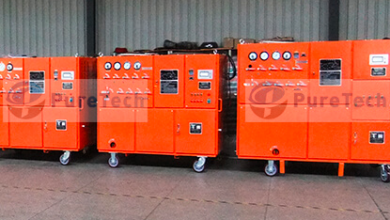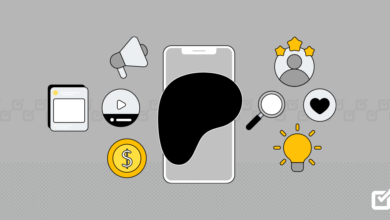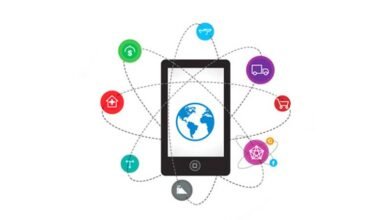Unity 3D Developer Hiring Guide: Technical Skills and Portfolio Evaluation

Unity 3D is one of the most popular gaming engines in the market. Hence, business owners and developers are keen to hire Unity 3D developers who can bring their projects to life. Whether startups want to develop their first game or established companies looking forward to expanding their workforce is vital for businesses. Also, hiring Unity developers with expertise in their skills is important, as it will lead you toward success. This guide will help you understand what technical skills you need to look out for and how to effectively evaluate a developer’s portfolio when you hire a Unity game developer.
Understanding Unity 3D
In order to know who should be hired it is important first of all, to get acquainted with what Unity 3D stands for and why it has become so popular. To hire Unity 3D developer, one must understand that Unity 3D is a potent cross-platform game engine that enables developers to create games in both two-dimensional (2D) and three-dimensional (3D). Its user-friendly interface, robust community support, and versatility have made it a game developers’ choice worldwide. Multiple platforms supported by Unity 3D such as PC, Consoles, Mobile devices and VR allow for reaching a wide audience.
Key Technical Skills When You Hire Unity 3D Developers
Should you need to hire a Unity 3D developer, you must recognize particular technical abilities that can help them deal with the intricacies of your job. Below are the most significant skills you should start with:
1. Proficiency in C#
Unity 3D development mostly uses C#. For instance, a good Unity developer must have an excellent understanding of this programming language including its syntax, data structures and object-oriented programming concept. Find out how well they can write clean, efficient, and maintainable code.
2. Experience with Unity Editor
Unity editor is at the heart of developing Unity applications. Still, its developers must be able to use it efficiently to create assets, implement game mechanics, and optimize game performance. They should be familiar with tools like Animator, Timeline and Unity UI.
3. Knowledge of Game Physics
Physics is a central aspect of game development as it determines how objects move and interact within the universe. If you hire a Unity developer, it is important to check whether they understand Unity’s physics engine and can utilize it appropriately. It will enable realistic collision detection, rigid body dynamics and gravity effects.
4. 3D Modeling and Animation
Knowing how to create and animate 3D models is a significant advantage for a Unity developer, even if he does not have the skills of a 3D artist. This knowledge helps developers integrate and optimize assets within the Unity environment. If you want to use this engine, look for professionals who know Blender, Maya, or 3ds Max.
5. Experience with Multiplayer Networking
If multiplayer components are part of your project, then hiring Unity game developers with networking abilities is crucial. Developers can create flawless multiplayer experiences when they understand the networking solutions Unity provides, such as Mirror, Photon, or Unity Multiplayer Services.
6. Understanding of Version Control Systems
In the development of games, collaboration is important, especially in large teams. Let developers be familiar with version control systems such as Git or SVN. These tools help manage code changes, track revisions, and coordinate with other team members effectively.
7. Problem-Solving Skills
Developing video games often involves complicated problems that call for creative answers. When you hire a Unity 3D developer, test their problem-solving proficiency through coding tests or real-life situations. These attributes are highly prized: strong analytical abilities and effective issue-resolution capabilities.
Evaluating a Developer’s Portfolio
Through an applicant’s portfolio, one can look into their competency level, experience, and flair in game design. This article is all about how to evaluate a portfolio when you hire a Unity developer effectively:
1. Look for Diversity in Projects
To have a broad range of projects in the portfolio is important. Consider diverse game genres, platforms and styles. Such versatility indicates how adaptable the developer is and the ability to handle new tasks. See if they have experience that is relevant to your project.
2. Assess the Quality of Work
Assess the quality of projects in the portfolio. Check attributes like the graphics, user interface, and general polish. A high-quality project means a developer pays close attention to details and produces unique work.
3. Consider the Complexity of Projects
This shows that a developer can handle complicated systems by creating complex projects. It would help if you looked for projects encompassing advanced mechanics, original gameplay features, or difficult puzzle-solving. This stuff would tell you whether they can develop complicated things.
4. Check for Completed Projects
Many incomplete projects in their portfolios might deter you from choosing some Unity game developers over others. One should hire Unity game developers who complete their projects to ensure this. Finished products will show how serious a developer is and will also demonstrate their reliability.
5. Pay Attention to Feedback and Reviews
Consider any publicly available games from this developer and evaluate user feedback/reviews if there are any other ratings provided by users/users and constructive criticism that can help identify strong points.
Interviewing a Unity Developer
Conducting a comprehensive interview to hire Unity 3D developers is critical after narrowing it down to prospective candidates. Pay great attention to the following areas:
1. Technical Interview
Hold a technical interview aimed at determining how proficient they are in C#, Unity Editor and related tools. Ask them about technologies, frameworks or methodologies that they have used recently. You can also incorporate some coding exercises and problem-solving scenarios.
2. Portfolio Discussion
Ask detailed questions concerning the developer’s portfolio. For each project, inquire about their role played, challenges encountered, and remedies put on the ground. Familiarize yourself with their contributions to previous projects for an understanding of what they are good at.
3. Cultural Fit
Evaluate if the developer corresponds with your company’s culture and values. Check their communication skills, capability of teamwork, and openness towards learning and adopting new things. Cultural fit is important in ensuring that there is work concordance and productivity.
4. Problem-Solving Exercises
Ask the developer how they would solve real-world problems or scenarios pertinent to your project. This exercise lets you determine their problem-solving abilities under pressure and creative thinking skills.
Final Words!
To bring your game or interactive project to life, it is very important to hire Unity game developer. Look for important technical skills and assess portfolios in detail when you are ready to hire a Unity developer that fits your project requirements.
Conduct extensive interviews, including questions on technical ability, problem-solving capacity, and cultural match. It’s easy now to confidently proceed into the game development process and get immersive experiences for your audiences by having the right developer as part of your team.





